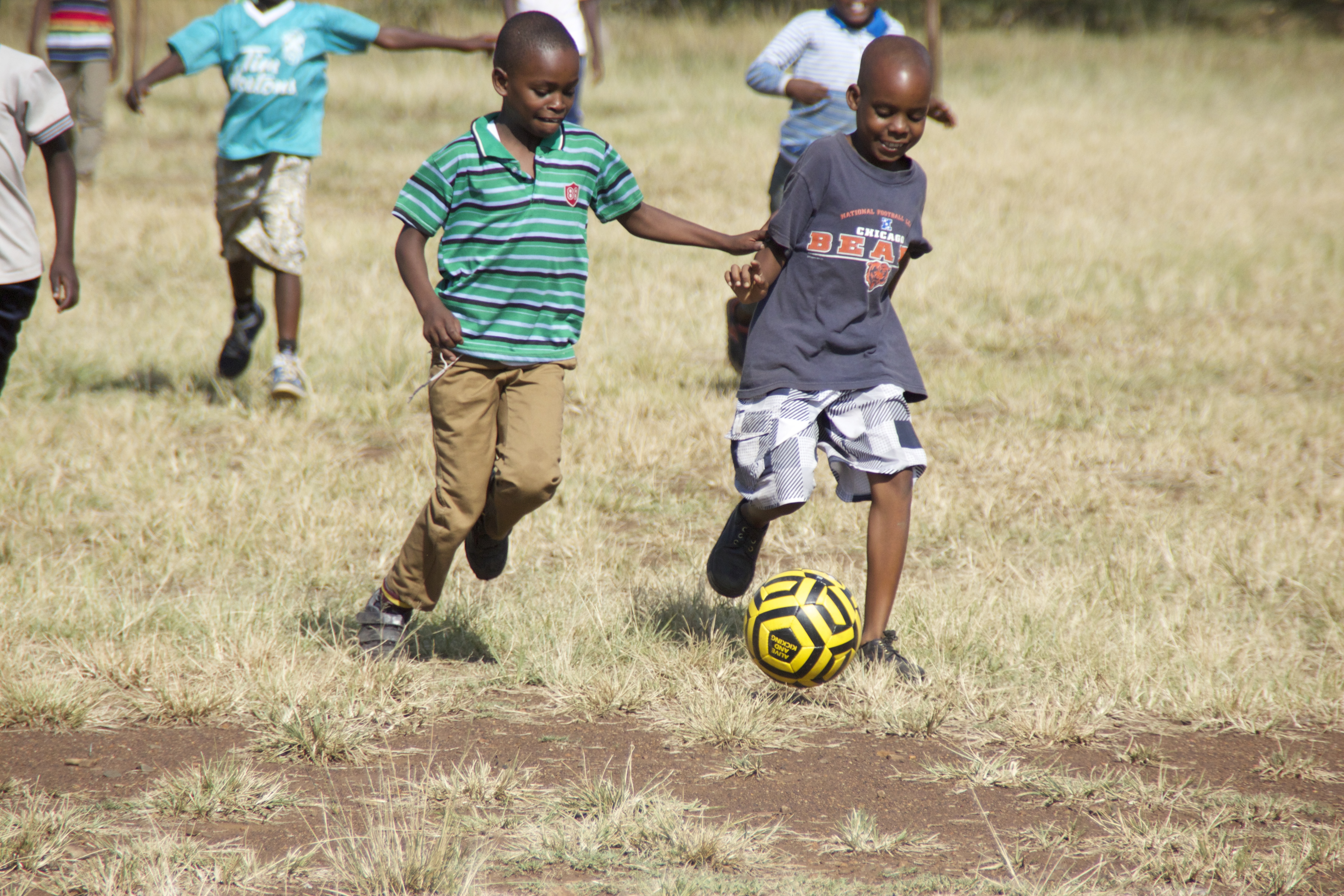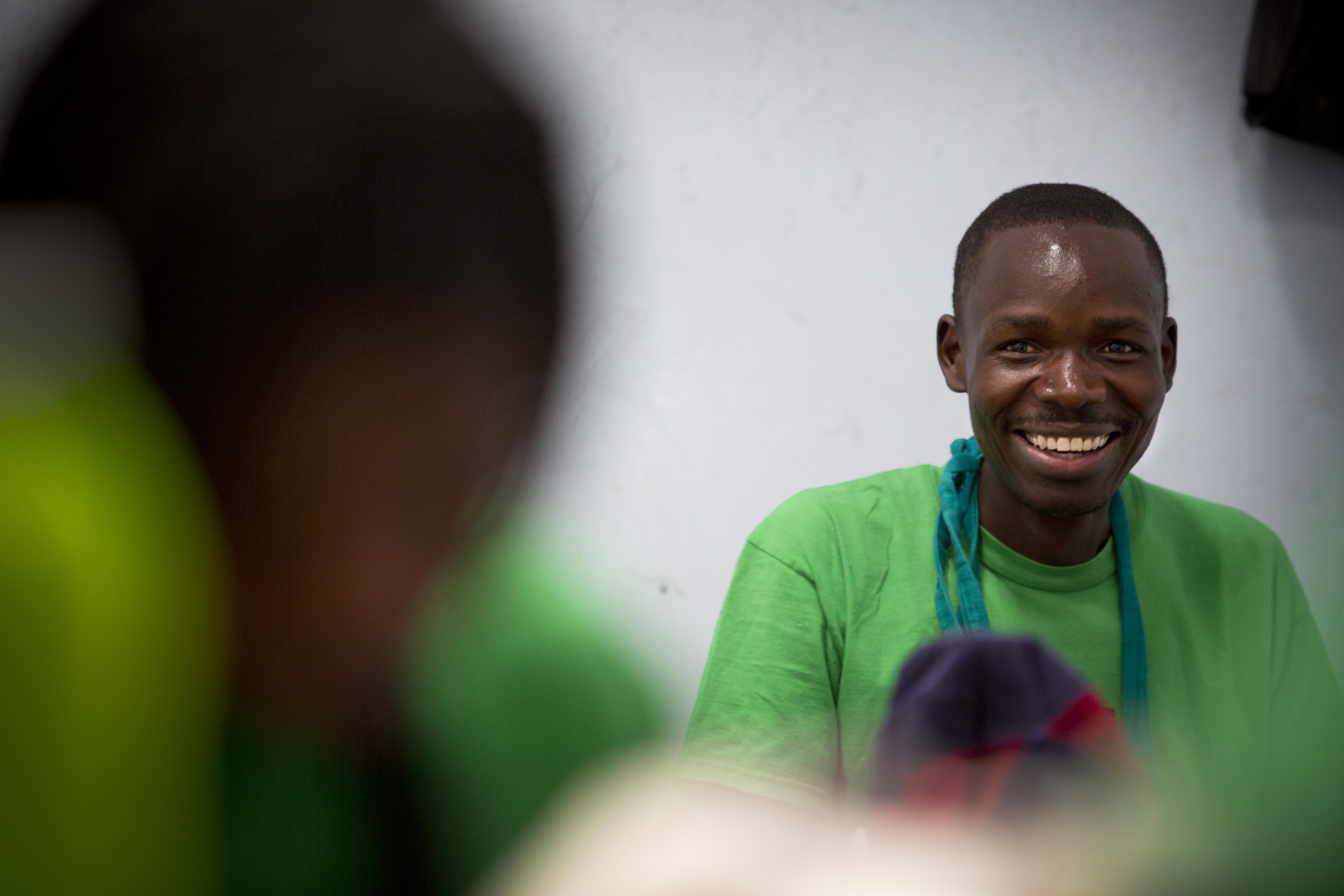“Alive and Kicking is a social enterprise aiming to increase access to sport, encourage participation from young kids and we’re seeking to reinvest our profits into health and education programs.”
Ghost town. A world far detached from the hubbub of central London, United Kingdom. That’s the impression you get when you walk past Hoxton Road, an area so quiet and listless but one whose quaint charm is strangely captivating. However, with the recent arrival of sports charity Alive and Kicking, a sense of life and vibrancy has been added to this old community.
At their opening launch on 8 July, an air of joy and relief was evident amongst Alive and Kicking’s volunteers, marking another big moment in the charity’s 12-year lifespan.
Following their London launch, the IPF spoke to CEO Glenn Cummins about their work producing hand-stitched footballs and creating fair-paid, ethical jobs in Kenya, Zambia and Ghana. Glenn said:
“We’re a social enterprise aiming to increase access to sport, encourage participation from young kids and we’re seeking to reinvest our profits into health and education programs.”

Nairobi, Kenya: Two young children playing with a ball manufactured by Alive and Kicking. [Image credit: Kate Holt]
“He was just a genius,” said James Flecker, former Chairperson and CEO of Alive and Kicking. “Despite his privileged upbringing at institutions such as Westminster School and Oxford University, he sought to improve these living standards.”
Jim passed away in late 2007, but he would be proud of Alive and Kicking’s development. Written in bold, black lettering at the front entrance of their new headquarters are the raw numbers: 985 coaches trained, 155 jobs sustained, 768,306 footballs made. And even those statistics don’t tell the whole story.
Glenn explained why starting three sustainable football manufacturing enterprises, as well as creating 155 ethical jobs alongside this, is something that they were proud of:
“Most manufacturing companies in Africa don’t last very long. Supply chains are tough, establishing a market for your product is hard and exporting regulations make trade very tricky so the fact that we’re still in existence is arguably our biggest achievement.”
Joel Phillimore, Digital Content and Marketing Manager for Alive and Kicking, explained that not only does the enterprise create jobs for people, but that they create well-paid jobs for them. He explained:
“Our wages were more than double the Zambian minimum wage, and even when this increased, we were paying our workers substantially more.”
The medium through which Alive and Kicking have managed to attain success is hinted by the organisation’s name: footballs; an item whose versatility has changed lives in unimaginable ways. Glenn said:
“Footballs are also unique in the sense that unlike shopping bags, shoes and belts, hand stitching is better than machine stitched.”
“This combines nicely with our employment policy, and offered us a great opportunity to create jobs. Furthermore, the raw materials we needed were available, so a lot of things lined up nicely for us.”

A young employee at work through the Alive and Kicking initiative in Nairobi, Kenya. [Image credit: Kate Holt]
Glenn said: “Our jobs fall across different categories; the three main sectors being production, sales, and admin. There’s a variety of jobs within each category. For example, in production we have people responsible for stitching of the balls, printing the messages on each panel, and ensuring quality control.”
So what’s next for Alive and Kicking?
“There’s no reason why we shouldn’t be striving to be the biggest ball manufacturing company in Africa”
Glenn continued: “If we get the Nigerian market covered, the biggest market in Africa, we could create a lot of jobs. We’ve set up in Kenya, Zambia and Ghana, countries where we haven’t faced much competition, but this may not be the case in bigger countries like Nigeria.”
These are seemingly lofty ambitions for this small organisation. But given what they’ve achieved over the last 12 years, don’t be surprised if Alive and Kicking become a big player in not only Africa, but also across the world.
Visit their website to find how you can support Alive and Kicking’s work.

